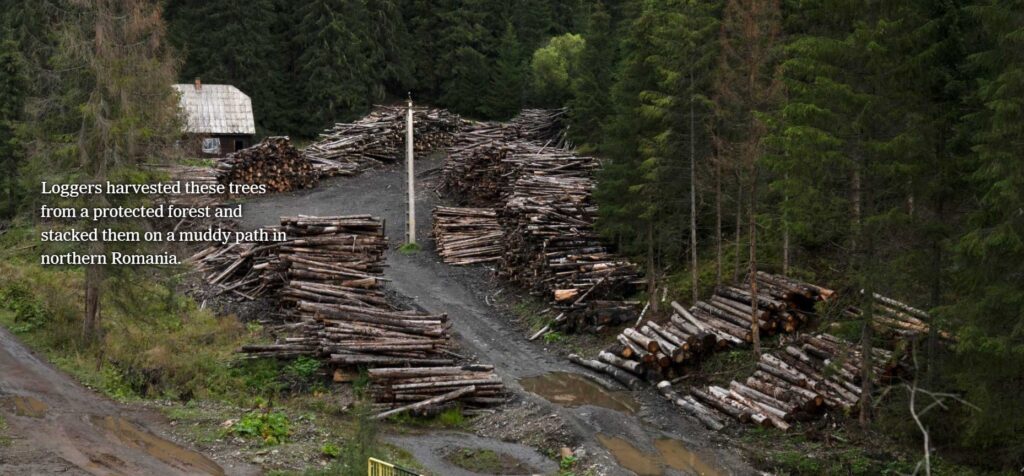The most recent article in the New York Times publication shows that the secular forest from Romania is sacrificed to make pellets, then exported to many European countries.
New York Times journalists conducted an investigation into Europe’s oldest forests, in Romania, in Cheile Bicazului northeastern region.
The American journal demonstrates how erroneous it is to refer to burned wood as „green energy” by using the headline „Europe is abandoning its centuries-old forests for energy.” The American newspaper claims evidence from the Romanian company Ameco, from the region of Harghita, proving that it feeds its grinders from Romania’s protected forests.
The forests of Romania, which make up two-thirds of the EU’s virgin forests, were hiked through over four days by a reporter and a photographer. Clearcutting was being done there, and they followed trucks coming from sensitively reclaimed forest areas.

Environmental Investigation Agency figures show that most of Romania’s largest pellet projects have been supplied with intact logs from protected forests. They estimated that these businesses received nearly a third of their wood needs from protected areas.
Once you cut down these old trees, you degrade ecosystems that took centuries to form with little human intervention.
Dan-Catalin Turiga, a forest engineer who accompanied Times reporters
Logging is allowed in the protected forests of Europe, but governments must do environmental assessments to ensure the land is being preserved. These analyses, according to experts, are not common. The European Court of Auditors warned about these ostensibly protected forests last year after discovering that many were in „bad or inadequate conservation quality.”
The NY Times also describes the export routes for pellets from Romania, Poland, and Slovakia to various EU countries, including Italy, where burning wood is thought to have little impact on global warming because trees absorb carbon dioxide from the atmosphere and release it back into it.
Moreover, Romania’s environmental ministry did not respond to the NY Times journalist’s questions about these shipments, the proposed law change and the pellet industry in general.
The problem of deforestation in Romania is catastrophic, and no measure from the Romanian authorities seems to have been applied or to have had an impact. Romania will remain without forests and an ecosystem, which will happen quickly if it is not acted upon. Journalists from the New York Times are not the only ones who tried to expose the forest mafia in Romania, and the saddest part is that illegal deforestation has been going on for years. With the energy crisis, people will ask for another option besides gas, and most likely, they will opt for heating with wood. How many will illegal wood exports leave Romania then?






